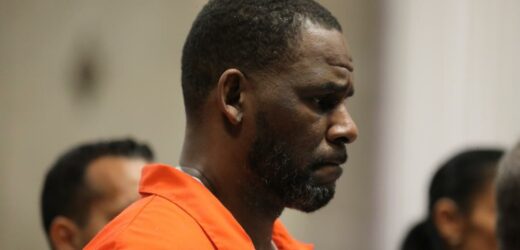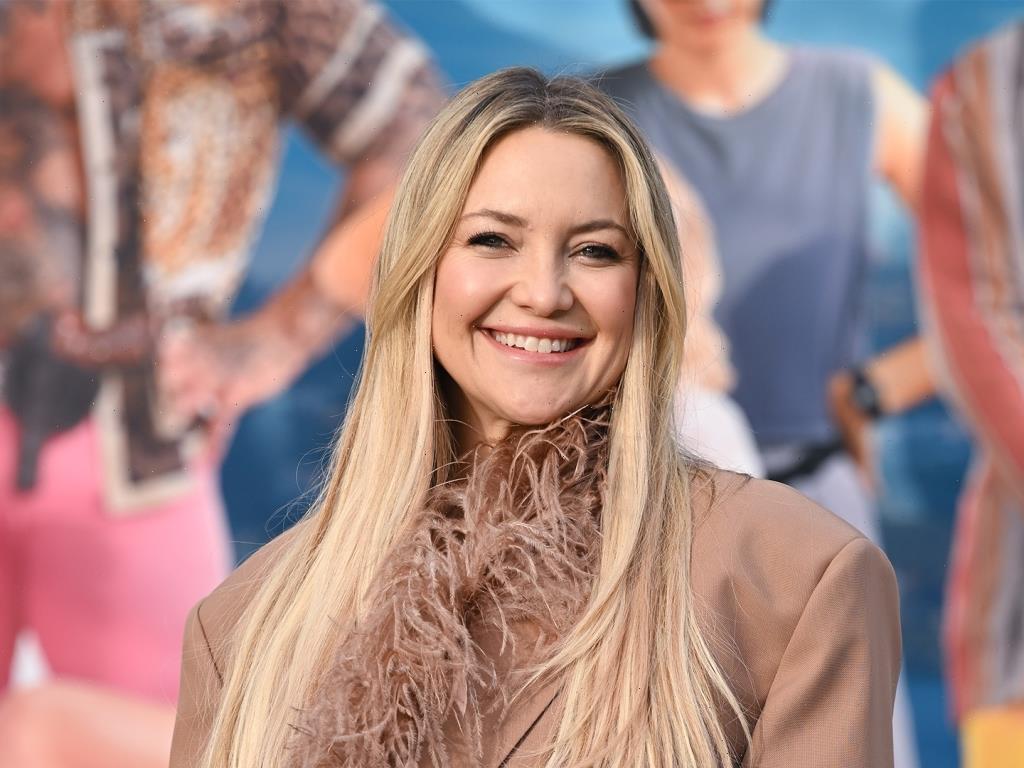When the Lifetime docuseries “Surviving R. Kelly” debuted four years ago, R. Kelly was a free man. The R&B singer’s career had long been trailed by allegations of abusing underage girls, which first arose in the early ’90s, but he remained one of the most successful hitmakers of that decade and into the 2000s. Also during that time, Kelly was briefly jailed and brought to trial for a 2002 indictment on 21 counts of child pornography. He was acquitted in 2008.
Kelly’s circumvention of the justice system damaged his career as an artist, but didn’t end it. It wasn’t until “Surviving R. Kelly” premiered in early 2019 that public opinion began to change. The series was greenlit prior to the initial impact of the #MeToo movement in October 2017, and was the first programming event of the #MeToo era to give a voice to survivors, ultimately bringing justice from the screen to a court of law. The series centers around Black women’s stories, an underrepresented group when it comes to social justice.
Today, Kelly is serving out a 30-year sentence in prison, after being found guilty on charges of racketeering and sex trafficking in 2022. Kelly was also found guilty in Chicago on three counts of child pornography for filming himself sexually abusing his then-14-year-old goddaughter. He still faces charges in other jurisdictions.
The third and final installment of “Surviving R. Kelly” centers around the trial that put Kelly behind bars, following the survivors and their families as the prepare to testify at the high-profile court proceeding. The new episodes also focuses on the journalists who covered the trial, as well as other legal and trauma experts.
“We are in a very different place at the start of this installment than we were over four years ago when we started this journey. He’s facing some very serious crimes,” says executive producer Jesse Daniels, who has been involved with “Surviving R. Kelly” from the start and was actively involved in developing the groundbreaking series.
In 2017, Daniels read a Buzzfeed article written by Jim DeRogatis, the journalist who broke the R. Kelly dam with a 2000 report in the Chicago Sun-Times, which is widely credited as the first domino to fall in R. Kelly’s empire. Despite that report and video evidence, which was at the center of R. Kelly’s 2008 trial, the criminal justice system took decades to catch up to DeRogatis’ investigative work and the accounts of survivors. “I remember the story made an impact, but after that, nothing really had happened,” Daniels says of the 2017 article. At that time, Daniels spoke with his fellow producers and asking why nothing had happened. With that, “Surviving R. Kelly” was born. “That was the inspiration and the motivation to investigate this further,” he says.
Accusers of R. Kelly have said he kept them as sex slaves, essentially part of a cult, locked in his home with no access to their families or the outside world. He would groom young women and men who had aspirations to become singers, and record them as he forced them into sexual acts. The six-week trial in 2022 revealed how R. Kelly used employees and intermediaries to lure fans and hopeful singers into sexually abusive and controlling conditions, including locking them in rooms without food or access to a bathroom for days.
During his 2022 federal trial in New York, “Surviving R. Kelly” was mentioned 150 times in the courtroom.
In the first installment of “Surviving R. Kelly,” parents of the victims spoke about trying to get their daughters back home. But one family is still fighting. Joycelyn Savage was 19 years old when she met Kelly, and the two are purportedly engaged. Last year, she released a book where she said she was carrying R. Kelly’s child, and just last month, she posted a photo of a newborn baby announcing that she welcomed a new baby with the imprisoned R. Kelly, though his attorney has denied her claim.
Savage’s parents are featured heavily in “Surviving R. Kelly,” emotionally discussing their fight to re-connect with their daughter. The final installment also introduces a new anonymous accuser who gives a harrowing account of allegedly being drugged and raped by R. Kelly. The episodes delve into the revelation that R. Kelly abused young boys, and give new detail into the widely speculated marriage and annulment of R. Kelly and then-15 year old Aaliyah.
“Surviving R. Kelly” executive producer Jesse Daniels spoke to Variety about the final installment.
What sort of impact do you believe the docuseries has had on R. Kelly’s legal cases?
When we started speaking with survivors and families, the world was in a much different place. This was pre-#MeTo movement [and] the survivors were worried that they were not going to be heard or believed. They were, as they’ve said, shouting into the wind. Where we are now at part three, which is the start of a trial where R. Kelly has faced many, many charges that are tied to the allegations made by our survivors. I can’t speak for our survivors, but I believe that they feel heard finally and believed.
“Surviving R. Kelly” without a doubt had an impact on the charges that were made. But we also really have to give a nod to the journalists who kept the story going for so many years – journalists such as Jim DeRogatis who’s been on this story for over 30 years, and those who attended the trial day in and day out; that is not an easy job to report on. Keeping the story alive and giving survivors a platform we owe them, it’s not just “Surviving R. Kelly,” but many people who contributed to that.
At what point did the producers decide to do a third installment?
After part one, we said that was it. But as we continued to stay in touch with our survivors, we started to hear about the pressure and the toll of preparing for this trial and gathering the courage to take the stand. We realize it’s hard enough for a survivor to tell their story in front of the camera, but to do so again while facing your abuser and his legal team is absolutely terrifying and incredibly brave. We really realized that we had a whole new story to tell here.
Part three has been announced as the final installment, but R. Kelly is still facing more charges. Do you have any plans to produce more?
For us, this is it. Whatever else R. Kelly faces is a minor footnote compared to the New York federal trial and the Illinois federal trial. I am speaking to our survivors today and their families, and many of them are successfully working on turning a page on their own personal lives. This was, for them, a really difficult time. Their journey through the trial was incredibly difficult. They feel ready to move onto the next chapter, and so are we.
Did you reach out to R. Kelly for an interview?
Legally, we have to. Every season, we reach out with a list of allegations and give an opportunity to speak on those, whether it’s via a written response or an interview.
This is clearly a series focused on the survivors, but was there ever a creative interest to get R. Kelly to sit down on-camera to actually hear from him, and not just as a legal checkpoint?
This is a story that gives a platform for survivors to speak, but as producers, we try our best to remain neutral in telling the story, and so, we believe that giving a 360-degree look at what has happened over the past 30 years is incredibly important. We certainly do try our best to reach out to anybody and everybody involved, whether it’s him or those in his camp.
You have extensive interviews with parents of the survivors and the common thread in this installment is that they have all gotten their girls back, except for Joycelyn’s parents who are in a completely different situation. What do you think their motive was in sitting down for an interview?
It’s a good question. At the very start of “Surviving R. Kelly,” we had several parents who were still trying to get in touch with their daughters, and now, at the start of part three, for the first time, we actually see parents sit down together in front of the camera, which was incredibly emotional. Tragically, the Savages were the only was the only family left who had not been in touch with their daughter. I can’t speak to how they feel now, but my heart goes out to their family.
Joycelyn said that she gave birth to R. Kelly’s baby, which his attorney denied. I’m not sure if you’ve kept in touch with the family, but do you have any more information on that situation?
All I can say is that my heart goes out to them. While I keep up with the day-to-day as much as possible, I can’t comment further on what’s happening there.
The New York trial revealed that R. Kelly also abused young men, and not just women. This installment delves into those allegations and you have an expert who says that R. Kelly’s story expanded from sexual abuse to predation. Why was it important to include that?
Our goal was to create a real 360-degree look at what was unfolding every day of the trial, and that certainly was a big chapter of the trial where there were male victims who testified. It was certainly something that we had heard in the past, but not in the context of this trial. We felt obligated to tell the whole the arc of the trial and every detail that we could.
This installment also goes very deep into R. Kelly’s marriage to Aaliyah when she was 15 years-old. What part did Aaliyah play into the overall story of R. Kelly’s abuse?
Aaliyah is Jane Doe #1 in the New York federal trial. That alone speaks volumes. We really tried to respectfully tell that story about Aaliyah, and simple because she was Jane Doe #1 in this trial, there was no turning away from that. I’m paraphrasing here, but in this installment, Jim DeRogatis says that Aaliyah’s name for the first time was spoken in a court of law in what is one of the biggest scandals in the history of popular music. I agree with him.
Did you have any concern about exploiting Aaliyah’s story, since she is not here with us to comment on what is being said about her?
Of course. We have had a lot of conversations about how to tell Aaliyah’s story every time because we really want to be respectful of her legacy. But what she went through, we can’t turn our backs on, so as her story got brought up tragically once again, but now in the court of law, we decided, to try really hard to retell what happened in that courtroom as it concerned to Aaliyah in the most respectful way possible.
Something that was revealed in the trial, but was not widely reported on, is that R. Kelly utilized NDAs to silence the women he preyed on, including Aaliyah. You provide more information regarding R. Kelly’s use of NDAs in this series, which has not been discussed much before.
I’m glad you picked up on that one. It’s a very important detail, but also a very chilling takeaway that came from the trial.
The series covers various intimidation attempts that the survivors and their families share. In late 2018, a gun threat was called into the premiere of “Surviving R. Kelly,” which was widely expected at the time to have come from a member of R. Kelly’s team trying to stop the premiere screening. Just this past month, his former manager, Donnell Russell, was sentenced to a year in prison for that shooting threat. Did that feel like a full circle moment that he was sentenced just as this final installment is about to come out?
I don’t feel comfortable speaking to the actual charges, but I can say personally, that night was one of the most terrifying nights of my life, and my biggest worry that night was that this was supposed to be a night to honor our survivors, and instead, they had been re-traumatized yet again.
What do you hope that viewers learn from the complexities of survivors of sexual abuse through watching this?
We’ve tried to break down just how difficult it is to leave an abusive situation, and then just how difficult it is to heal from an abusive situation. That conversation, in every single chapter, is one of the most important themes to talk about because we believe that viewers at home can learn from that, and hopefully, we can spark conversations at home on this topic.
Read More About:
Source: Read Full Article


